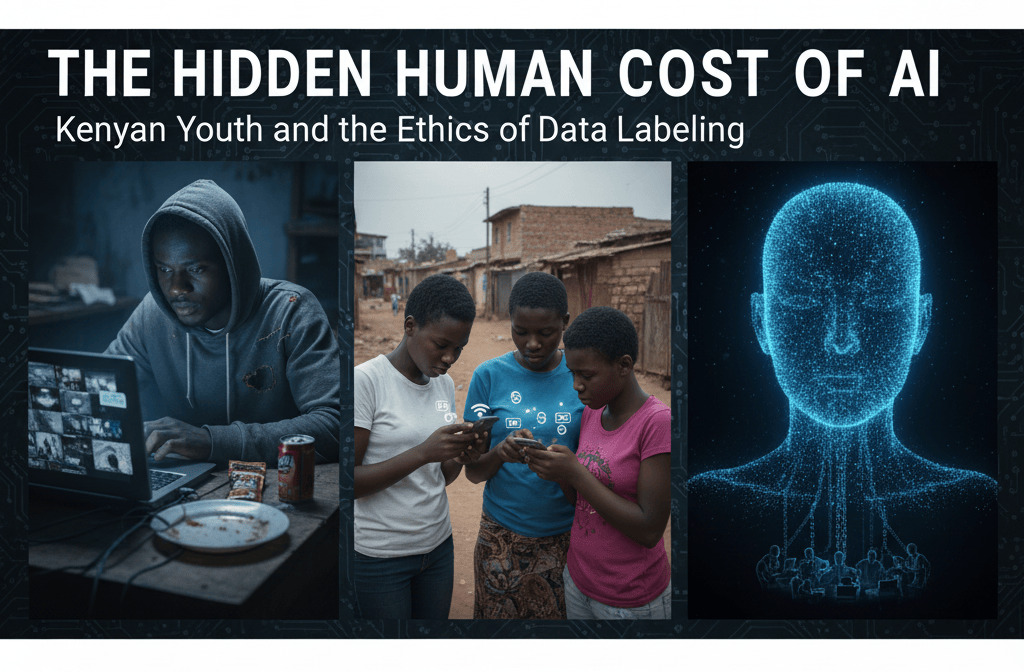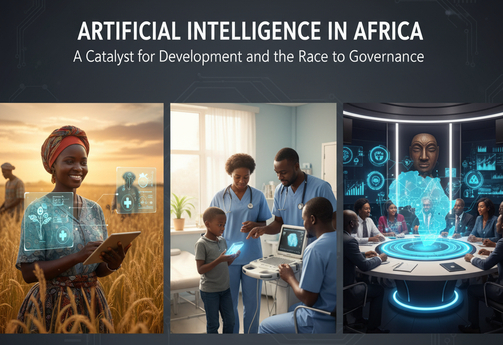NAIROBI, KENYA – As the world marvels at the rapid advancements of Artificial Intelligence, a crucial and often overlooked element underpins its sophistication: the vast armies of human data labelers. In developing nations, particularly in Kenya, a growing number of young, often desperate and jobless individuals are performing this essential but poorly compensated work, raising urgent ethical questions about exploitation, fair labor practices, and the true cost of "intelligent" machines.
The Invisible Workforce: Fueling AI with Human Sweat
The advanced AI models that translate languages, identify objects in images, or power self-driving cars don't learn magically. They require massive datasets of labeled information – images tagged with descriptions, audio transcribed into text, or text annotated for sentiment. This tedious, repetitive, and often mentally exhausting task is frequently outsourced to low-wage workers in countries like Kenya, where high unemployment rates create a ready supply of labor.
A groundbreaking investigation by TIME Magazine in 2023 exposed how Kenyan workers were paid as little as $2 per hour – and sometimes even less – to label sensitive and disturbing content for AI training. This included graphic descriptions of violence, sexual abuse, and hate speech, which workers were forced to review repeatedly to train content moderation algorithms. The report detailed how OpenAI, the creator of ChatGPT, outsourced this highly sensitive work through a third-party company, Sama, based in Nairobi, Kenya.
The Allure of "Digital Piecework" and the Harsh Reality
For many young Kenyans facing bleak job prospects, these data labeling jobs, often advertised as "digital piecework" or "online tasks," represent a lifeline. The promise of earning in dollars, even if minimal, can be attractive in an economy with limited formal employment opportunities. Platforms like Remotask, Appen, and Clickworker are commonly used, connecting workers to projects from global tech giants.
However, the reality often falls short of expectations. Workers frequently report:
- Extremely Low Wages: Pay rates can range from cents to a few dollars per hour, often barely enough to cover daily expenses, let alone save or invest.
- Precarious Employment: Most roles are task-based, offering no job security, benefits, or consistent income. Workers are paid per task, not per hour, pushing them to work faster and longer for meager returns.
- Mental Health Strain: As highlighted by the TIME investigation, reviewing violent, hateful, or explicit content can have severe psychological impacts, leading to trauma, anxiety, and depression, with little to no mental health support provided.
- Lack of Recourse: Workers often lack formal contracts or union representation, making it difficult to address grievances, challenge unfair rejections of tasks, or demand better working conditions.
- The "Gig Economy" Dark Side: These jobs often replicate the worst aspects of the gig economy, where companies externalize costs and risks onto individual workers.
Ethical Reckoning: Who is Responsible?
The revelations have sparked a global debate about the ethical responsibilities of AI companies and their outsourcing partners. Critics argue that this practice constitutes a new form of digital colonialism, where developing nations are exploited to build the technological infrastructure of wealthier ones, often at a significant human cost.
Wanjira Kamwere, a Kenyan digital rights activist, has been vocal about the need for better protections for these workers. As reported by various African tech publications, Kamwere emphasizes that "AI is not magic; it's built on the backs of real people, and we need to ensure those people are treated with dignity and fairness."
Organizations like the Tech Workers Coalition and various human rights groups are advocating for:
- Fair Wages: Implementing living wages that reflect the local cost of living and the value of the work performed.
- Improved Working Conditions: Ensuring safe working environments, reasonable hours, and protection from psychologically harmful content.
- Mental Health Support: Providing accessible mental health services for workers exposed to disturbing content.
- Transparency and Accountability: Greater transparency from AI companies about their data labeling supply chains and holding them accountable for the labor practices of their subcontractors.
- Worker Rights: Empowering workers with the right to organize, negotiate collectively, and have clear grievance mechanisms.
The debate extends to whether AI models should be trained on data labeled under exploitative conditions. If the very foundation of advanced AI is built on unfair labor, can these technologies truly claim to be "ethical" or "beneficial" for all humanity?
The case of Kenyan data labelers serves as a stark reminder that the future of AI is not solely about algorithms and computing power, but about the human beings who contribute to its intelligence, and the ethical frameworks that must protect them. As AI continues its rapid ascent, ensuring dignity and fair compensation for its unseen workforce must become a central pillar of its development.


























